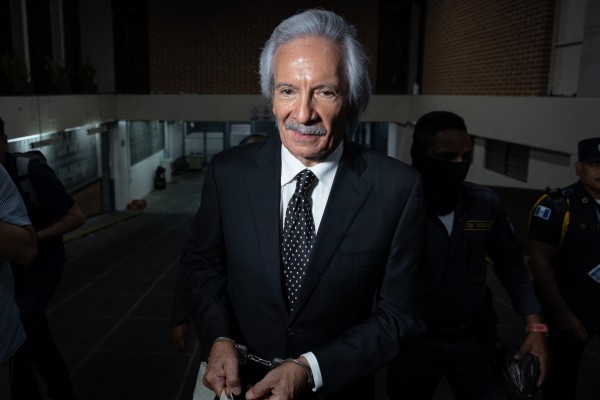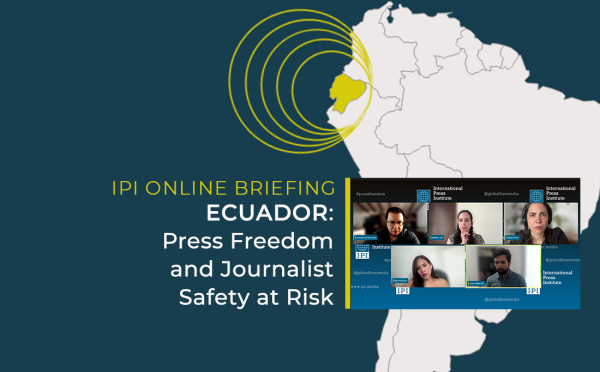One year ago, to the day, in the small town of Ponta Porã along Brazil’s border with Paraguay, two motorcycle-bound assailants pulled up next to journalist Paulo Roberto Carlos Rodrigues, known as Paulo Rocaro, and fired a deadly round of at least 12 bullets.
Two months later, in the centre of the same town, a military police investigator believed to be assigned to the Rocaro case was gunned down, again by two assailants on a motorcycle. César Santos Magalhães had reportedly told friends just days earlier that he knew who was behind the killing of Paulo Rocaro. He was hit at least 14 times.
Six months after that, in October 2012, Luiz Henrique Georges, a financial donor to Jornal da Praça, where Rocaro had covered political corruption and drug smuggling along the frontier, was also murdered, once more by gunmen on a motorcycle in the centre of Ponta Porã.
None of these murders has been solved; no evidence has been produced indicating whether or not these events were related; no suspected motive has been officially announced.
A secret of justice
Contacted by the International Press Institute (IPI), a spokeswoman for the Mato Grosso do Sul state police said that information related to the Rocaro investigation had been declared a segredo de justiça (“secret of justice,” roughly equivalent to the English term “in camera”), meaning that it could not be shared with the press.
The spokeswoman gave no indication of when progress could be expected. That uncertainty stands in stark contrast to official attitudes from last March, when the Secretary of Public Safety for Mato Grosso do Sul, Wantuir Jacini Brasil, announced that the investigation was “moving along well.” Even the state’s governor, André Puccinelli, had commented last year: “we have almost solved the crime and when the findings are announced a lot of people will be surprised.”
Edmondo Tazza, a Ponta Porã journalist who later became editor-in-chief of Jornal da Praça, told IPI there were several reasons why Rocaro’s case has not been solved: “First, because of the difficulty of identifying the men on the motorcycle. Second, because there are many versions of the story, many different motives as to why he was killed. Third, because there are indications that someone ordered the hit.”
The lack of clarity surrounding the investigation has, naturally, led to the development of multiple hypotheses, all equally unproven. “One of the versions that makes the most sense about the killing of Paulo Rocaro is that it was motivated by politics and not by his journalism,” says Karine Segatto, president of the Dourados Regional Association of Professional Journalists (Sinjorgran), which operates in Ponta Porã. “But since the crime hasn’t been solved, we have no way of knowing.”
Not our jurisdiction
Santos Magalhães worked for the Mato Grosso do Sul military police, meaning that his widely reported involvement in the Rocaro investigation would likely have been controversial. In Brazil, the state civil police has the sole responsibility for investigating crime, while the military police (of which there is a branch in each state) is tasked with maintaining public order.
The Mato Grosso do Sul military police, responding to a specific IPI inquiry, declined to address the question of Magalhães’s alleged work on the Rocaro case. As for information on the murder investigation, we were directed to the state civil police, which has jurisdiction over any crime committed “even if this involves the killing of a military police officer.”
Back at the Mato Grosso do Sul civil police, IPI was unable to obtain a comment from the investigator involved in the Magalhães case, Odorico Mesquita.
A third branch of law enforcement, the federal police, was also rumoured to have been involved in the Rocaro investigation. In an interview with Mercosul News in Mar. 2012, the director of the federal police unit in Ponta Porã, Jorge Figueiredo, denied reports that a team of federal investigators had been in the town.
Figueiredo explained that the federal police could provide logistical support should the Civil Police request it. But, he emphasised, “As for participating in the investigation, it is not possible, as the case is outside of our jurisdiction.” To be sure, the federal police only investigates federal offences, of which the murder of a journalist is not (yet) one.
As for the Civil Police, Secretary Jacini Brasil declared last March, “The participation of the Federal Police, at this time, is not necessary.” Almost a year later, it is unknown at what point the Civil Police will consider federal support necessary.
A bill (No. 1078/2011) that would allow the federal police to intervene in investigations into crimes against journalists in which there has been an “omission or inefficiency” on the part of state authorities was introduced in Brazil’s Chamber of Deputies in 2011, but it has since remained stuck in the Commission for Public Security and Combating Organised Crime.
Rumour mill
Clemir Vieira Junior, the Mato Grosso do Sul police officer responsible for the investigation into the killing of Luiz Henrique Georges emphasised to IPI that there were no links to the Rocaro case and that George’s exact relationship to Jornal da Praça was unclear.
In addition to his role at Jornal da Praça, Georges was also the nephew of Fahd Jamil, known as the “Godfather” of the Brazil-Paraguay border. In 2005, Jamil was sentenced to more than 30 years in prison for drug smuggling and money laundering (though Brazil’s Superior Court of Justice absolved Jamil of all charges in 2011).
But the family connection, local sources say, has not been enough to quell rumours that Georges’s death was somehow related to Jornal da Praça or to Paulo Rocaro. Segatto told IPI that the press, particularly in the state capital of Campo Grande, had been quick to link the two murders. But, she added, by way of explanation, “the impunity leaves a lot of room for debate about what motives led to the killings, and [theories on] the possible links between the crimes continue to grow.”
Impunity marches on
As the debate continues as to who ordered the killing of Paulo Rocaro and why, one thing is certain: pervasive impunity continues to hamper efforts to ensure journalist safety in Latin America’s largest and most populous country.
“Brazil is now among the most dangerous countries in the Western Hemisphere for journalists,” said IPI Deputy Director Anthony Mills. “Troublingly, as the number of media killings has risen, the will or the ability to bring those responsible to justice appears to be lagging. This impunity is fueling a cycle of violence against the few reporters brave enough to address delicate topics such as drug smuggling and local corruption.”
Since 2011, 11 journalists have been killed in Brazil for reasons believed to be related to their work—second only to Mexico’s 17. More often than not, the masterminds behind these killings have remained free, as IPI made clear in its 2012 special report on Brazil, “Secrets of a Giant“.
“It is high time that the Brazilian federal government make clear that acts of violence against the media—whether on the frontiers of Mato Grosso do Sul or the streets of Rio de Janeiro—will not be tolerated. Indeed, where the media is threatened, democracy is too. We urge the Brazilian Congress to quickly pass bill 1078/2011, which would give federal authorities competence in investigations where state officials have not been successful,” stated Mills.
Back in Ponta Porã, Tazza painted a depressing picture of the march of impunity: “There are protests … but mostly against the fact that the killing [of Rocaro] was cowardly and violent, than against the impunity itself, because the majority already knows about how the ‘magic’ works here: Nobody heard anything, nobody saw anything, nobody said anything.”
“With the passage of time, the protests become less and less frequent,” he explained. “Everyone has to think about his own life and his own priorities.”
All the more reason, IPI believes, to insist that investigating crimes against journalists be a lasting priority for the Brazilian federal government.


